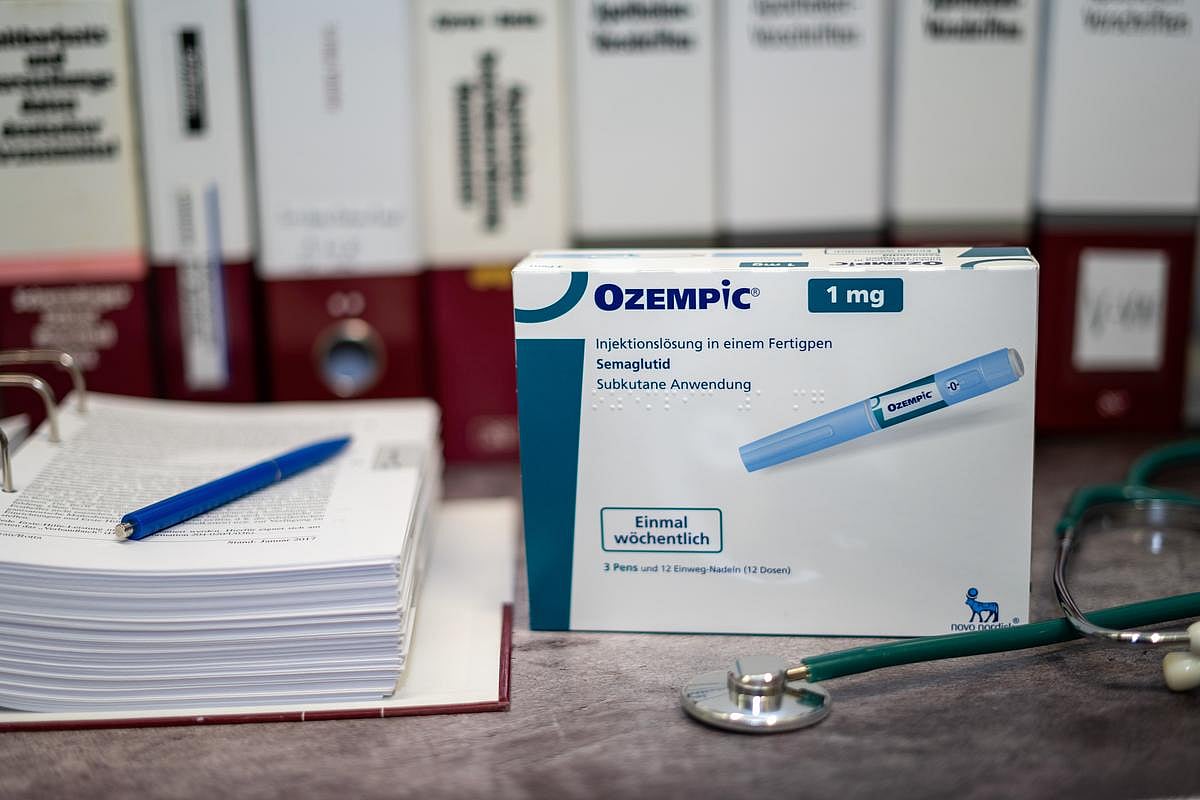Duson’s Cashway Pharmacy now has their own website & mobile app!
Visit them at https://dusonscashwaypharmacy.com or Click Here!
Get Healthy!

- Dennis Thompson
- Posted June 24, 2025
Studies Address Muscle Loss Caused By GLP-1 Drugs
GLP-1 drugs like Ozempic and Zepbound are great at promoting weight loss, but they also cause folks to lose muscle along with fat.
Experts are now turning their attention toward helping GLP-1 patients maintain muscle while dropping fat, according to a pair of new studies presented at the American Diabetes Association’s annual meeting in Chicago.
An experimental muscle-preserving drug called bimagrumab helped people taking semaglutide (Ozempic/Wegovy) keep their muscle while losing weight, according to clinical trial results presented Monday.
In a separate study presented Sunday, researchers unveiled a potential test for tracking weight loss among GLP-1 patients.
“As we enter a new era of obesity treatments, it’s vital to focus not just on the amount of weight lost, but on preserving muscle mass and gaining the health benefits that result from treating obesity,” Dr. Samar Hafida, vice president of the Obesity Association — a division of the ADA – said in a news release.
The number of Americans taking GLP-1 drugs has increased nearly sixfold over the past five years, the ADA said in background notes.
Unfortunately, as much as 40% of the weight dropped on these drugs comes from loss of muscle mass rather than fat, the ADA says.
This muscle loss can have dramatic effects on a person’s health. Lean muscle mass stabilizes blood sugar, boosts immunity, protects bones and joints, and revs up metabolism, according to Northwell Health.
To try to prevent that loss, researchers combined bimagrumab with semaglutide in a clinical trial involving more than 500 people.
Bimagrumab is a lab-made antibody that blocks a protein called activin type II. This protein helps control how much muscle a person has. By blocking it, the drug helps the body build more muscle.
The drug initially was developed in the 2010s as a means of combatting muscle wasting diseases. Pharmaceutical firm Eli Lilly and Company — which makes Zepbound — is developing bimagrumab as a means of treating obesity.
Patients assigned bimagrumab in the clinical trial received IV infusions of the drug at weeks 4, 16, 28 and 40.
The combination of bimagrumab and semaglutide caused nearly 93% of people’s average weight loss to come from fat mass alone, results show.
By comparison, weight loss from fat alone amounted to just 72% for those taking just semaglutide, researchers found.
People also lost more body weight on the combination — a 22% decrease in weight compared with 11% for bimagrumab alone and 16% for semaglutide alone.
Researchers noted that in people who only took bimagrumab, 100% of weight loss came from fat melting away. These patients also had a more than 2% increase in their lean muscle mass.
“These insights indicate that is not only possible to achieve substantial fat loss, but also to preserve, or even enhance, lean mass in the process,” lead researcher Dr. Steven Heymsfield, a professor at Pennington Biomedical Research Center in Baton Rouge, La., said in a news release.
Researchers now are testing bimagrumab in combination with Zepbound to further evaluate the combo approach.
In the second study, researchers figured out a way to monitor muscle loss that occurs during GLP-1 treatment.
The team developed a biosensor to track phenylalanine, an amino acid produced when muscle breaks down or during the digestion of protein.
Phenylalanine levels in healthy people are 100 uM/L or higher following a high-protein meal, researchers said.
They designed their biosensor to detect phenylalanine levels up to 1500 uM/L, which might indicate muscle loss.
“GLP-1 medications have transformed the treatment of diabetes and obesity, but they can also increase the risk of muscle loss,” lead researcher Rebecca Gottlieb, vice president of Advanced Sensor Technologies at Biolinq, said in a news release.
“While patients are advised to consume more protein to preserve muscle, it’s often difficult to know if they’re getting enough,” Gottlieb said. “That is why solutions to bridge this gap by providing real-time feedback are more important than ever — especially for those on GLP-1 therapies, older adults, or anyone managing sarcopenia.”
Researchers next plan to conduct clinical trials to evaluate the sensor’s real-world performance.
Findings presented at medical meetings are considered preliminary until published in a peer-reviewed journal.
More information
Northwell Health has more on muscle loss with GLP-1 drugs.
SOURCE: American Diabetes Association, news release, June 23, 2025




